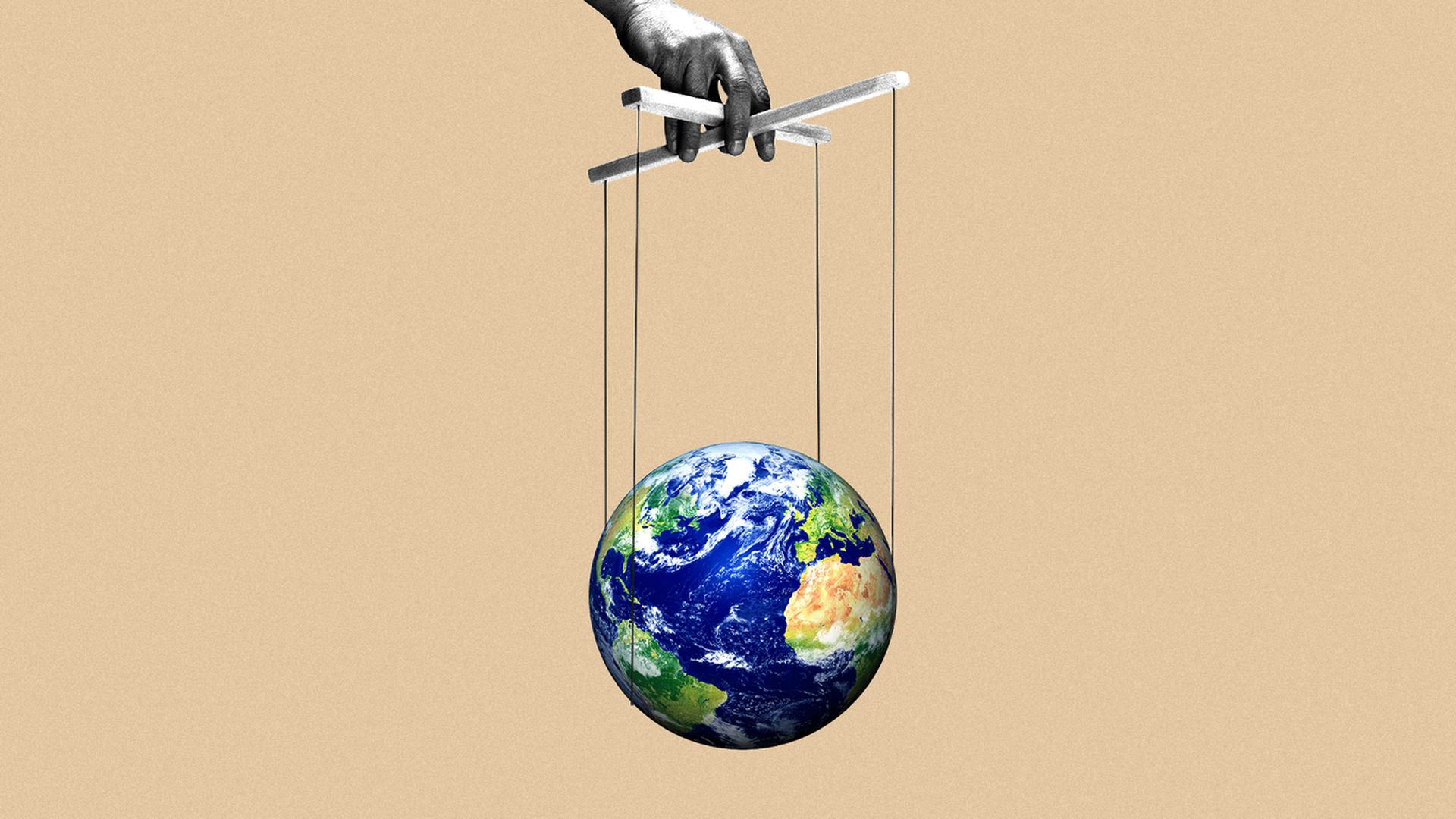The free press is getting squeezed, even in democracies
Add Axios as your preferred source to
see more of our stories on Google.

Illustration: Aïda Amer/Axios
The corruption indictments issued for Israeli Prime Minister Benjamin Netanyahu last week include charges that he sought to manipulate the media to secure more favorable coverage.
Why it matters: Such interventions have become more prevalent around the world, including in democracies. As we've seen in places like Russia and Turkey, one of the surest signs democracy is being eroded is a crackdown on independent media.
Driving the news: Netanyahu was indicted for an arrangement he allegedly brokered with a telecom magnate, in which the prime minister offered favorable business regulations in return for positive coverage of him and his wife Sara.
- The deal was with Shaul Elovitz, who was formerly the majority shareholder of telecom group Bezeq. Bezeq owns a popular Israeli news website called Walla.
- Netanyahu was also indicted on charges that he struck another deal with a Tel-Aviv-based daily newspaper called Yedioth Ahronoth to limit the circulation of its competitor in exchange for less critical coverage.
Be smart: Israel still has a vibrant media ecosystem, but such attempts to delegitimize negative coverage and control the press are not limited to Israel. They can range from subtle to brutal.
- In Hungary, Prime Minister Viktor Orbán and his allies have "systematically taken control of roughly 90% of the country's media outlets," per NPR, consolidating dozens of print, radio and TV outlets into one giant conglomerate that Orbán has exempted from Hungarian media or competition rules. There have also been reports that Orbán has "systematically starved" independent outlets of state advertising money if they do not provide favorable coverage of his administration.
- In Turkey, President Erdogan's allies in the business community have bought up a handful of mainstream-media outlets that have subsequently adopted a pro-government stance. According to The Atlantic, the government has in many cases enabled those sales. That consolidation has occurred in conjunction with an increase in free press penalties, including fines and jail time, that have grown more severe as Erdogan's reign has become more autocratic.
- In the Philippines, President Rodrigo Duterte’s government has used an aggressive "cyber libel" law to lodge several cases against independent media site Rappler and its CEO Maria Ressa, per Poynter. Earlier this year, the government revoked Rappler's news registration in a move that press freedom groups called politically-motivated.
- In Venezuela, U.S. journalists were arrested and detained by the country's military counter-intelligence agency earlier this year at the command of President Nicolás Maduro. Maduro's crackdown on journalists comes after years of autocratic actions that have eroded the country's democracy.
Zoom out: In fully autocratic countries, the simple act of reporting can be dangerous. Just this past week:
- In Egypt, security forces raided the offices of the last major independent media company and temporarily detained three of its top editors, per the New York Times.
- In Saudi Arabia, the government detained "at least eight people, mostly intellectuals and writers ... amid a two-year crackdown on free expression in the kingdom," per Reuters. The move follows the one-year anniversary of the murder of Washington Post columnist Jamal Khashoggi, which U.S. intelligence officials say was ordered by the Crown Prince Mohammed bin Salman himself.
The big picture: Internet freedom is in decline around the world, with governments using social media to monitor their citizens and spread disinformation at home and overseas, according to an annual Freedom House report.
Even in the U.S., President Trump has been accused of attempting to punish outlets whose coverage he objects to.
- Last year, activist group PEN America filed a federal lawsuit against the president for having "directed his threats and retaliatory actions at specific outlets whose content and viewpoints he views as hostile."
- In April, The Justice Department filed a motion asking a district court to dismiss the lawsuit.
Go deeper: Internet freedom declines in U.S. and around the world

